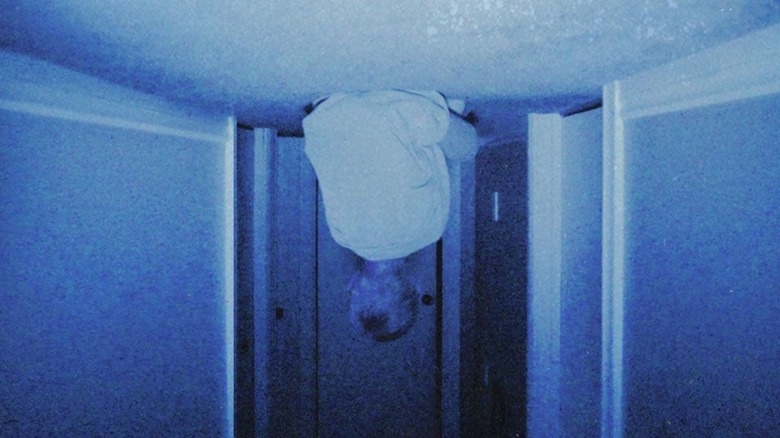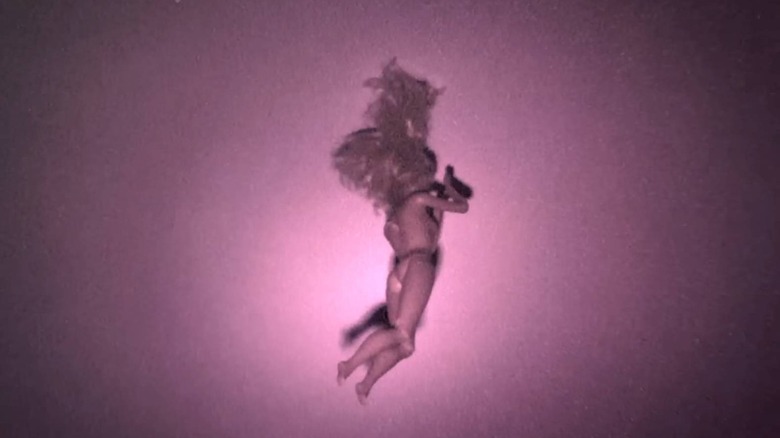Why Skinamarink's Title Creepily Resembles The Name Of A Children's Song
As if you needed any more reasons to be creeped out by the viral experimental horror film "Skinamarink," its title is a darkly ironic nod to a children's song. For the uninitiated, "Skinamarink" is a micro-budget horror project written and directed by Canadian filmmaker Kyle Edward Ball. Spinning out of his moderately successful YouTube channel Bitesized Nightmares, "Skinamarink" was inspired by comments from his viewers detailing shared or similar experiences in their own night terrors (via Deadline).
Ball took these eerie tropes and turned them into a story about two young children who awaken in the dead of night to find their father missing, and the doors and windows of their house rapidly vanishing before their eyes. "Skinamarink" was shot at Ball's childhood home on a budget of just $15,000 (per Deadline), and went viral after a festival copy of the film was mistakenly allowed to be pirated and illicitly distributed online (per Variety).
Things more or less worked out, however, as "Skinamarink" has grossed over $1.5 million during its limited release (per Box Office Mojo). In February, it will be released on the horror streaming service Shudder, where viewers can watch from the comfort (or safety) of their own home. The story will likely be an especially uncomfortable and/or distressing experience for certain parents or children of the '80s and '90s, thanks to its title.
Its a reference to a nursery rhyme
The title "Skinamarink" is a slightly re-spelled version of "Skidamarink," the title of a nursery rhyme that (according to SuperSimple.com) parents commonly sing to their children in North America. The lyrics are very basic, going "Skidamarink a dink a dink, skidamarink a doo, I love you. ... I love you in the morning, and in the afternoon. I love you in the evening, and underneath the moon. Oh, skidamarink a dink a dink, skidamarink a doo, I love you," (via Lyrics on Demand).
The song actually originates from a 1910 Broadway musical, "The Echo," but was later popularized on children's TV: firstly with "The Elephant Show" in the '80s where it was sung at the conclusion of every episode, followed by the spin-off "Skinnamarink TV" in the '90s — featuring, once again, a different spelling.
Speaking to Inverse, Kyle Edward Ball said of the name, "It's personal, sentimental, and feels personal to other people; it's child-like and makes no sense..." In a twisted sort of way, Ball's film is also childlike and nonsensical in that it's a disturbingly bizarre story told from the perspective of two young children. Given this, as well as the film's near-singular focus on family, it's perfectly suited for its title.

